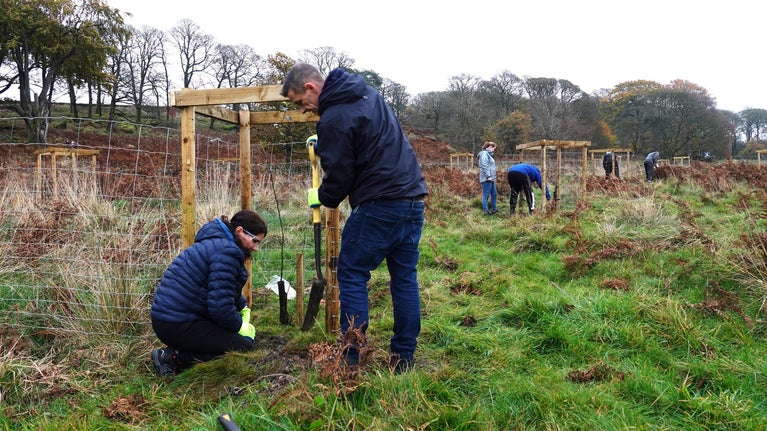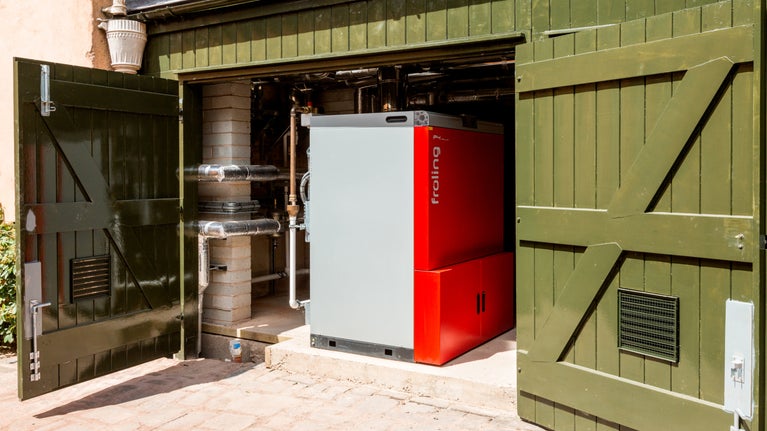Reaching carbon neutral at Killerton

Killerton is one of the Trust’s biggest estates in the South West and with that comes the need for a wide variety of solutions to reach carbon neutral - some big and bold and some downright quirky. From bio-mass boilers and Ranger e-bikes to planting 1 million trees, the Trust is making great inroads towards reducing carbon emissions at this historic estate.

By 2030 the National Trust will be carbon net zero, which is when we achieve a balance between the carbon released into the atmosphere and the carbon removed from it. At Killerton, we have already replaced three oil-fired boilers with biomass boilers, which heat the house and its water. This has reduced oil consumption by 24,000 litres a year, and so far, emissions roughly equivalent to 1 million miles driven by an average family car have been saved. We are also planting 1 million trees across the estate by 2030, which will help to store carbon as well as benefit nature by creating bigger, more joined-up habitats.

Some vehicles and machinery are being changed over to electric models, for example, the countryside and gardening team now have e-bikes and electric hedge trimmers, bush cutters and chainsaws are also being used. For visitors, the Trust has installed 6 electric vehicle charging points in the car park.
Volunteers and house staff are replacing all of the lightbulbs with low energy light bulbs in the house, shop and restaurant. With approximately 500 light bulbs in the house alone, this is no mean feat! Once completed, this will reduce the lightbulb energy consumption by at least 75%.
On the wider estate, Killerton cares for 250 tenanted properties and holiday cottages and the Trust is also working to reduce emissions here too. This includes upgrading window glazing, installing roof insulation and improving heating and hot water systems where possible.
The Trust has also worked to ensure that all of its plant shops are peat free, including the one at Killerton, as peat stores carbon when it is left in the ground but emits it when harvested.
To reduce the amount of water used in the garden, the Trust is harvesting rainwater and to further reduce use, sewage is processed by a natural withy bed system which uses much less water than a traditional sewerage system.
'On the Killerton estate, we are seeing the impacts of climate change first hand including reduced butterfly numbers, rain scouring of the pathways and scorching of the lawns in summer, but there is hope. Because of the size and scope of the Killerton estate we have had to be very ambitious, but we can all do our bit to combat climate change and the work taking place here is really no different to what can be done in our own homes. I’m so grateful to all of the hard work of the staff and volunteers here, we wouldn’t be able to reach our target without them.' Phillip Smart - General Manager
Climate change is the biggest threat to the coast, countryside and historic buildings in the Trust’s care. Find out what we are doing as part of the global fight against climate change.